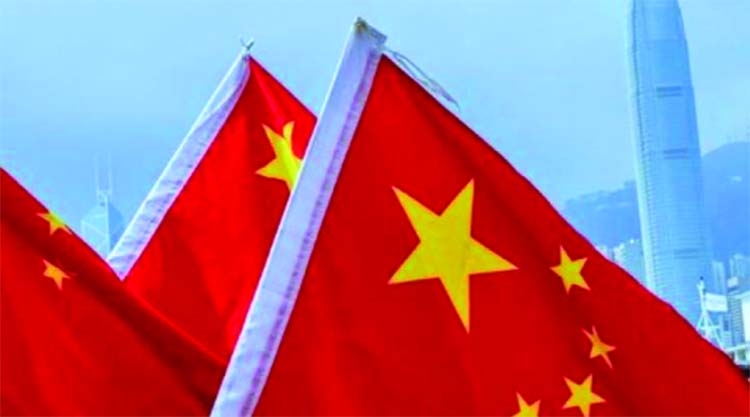When China announced a surprise deal restoring ties between Saudi Arabia and Iran this year, it signalled Beijing’s desire to be a diplomatic heavyweight in the Middle East.
The crisis in Israel and Gaza threatens to expose the limits of that ambition. After the March Saudi-Iran agreement, which China brokered, Chinese media hailed Beijing’s rising profile in a region long dominated by Washington. Wang Yi, China’s top diplomat, said the country would continue to play a constructive role in handling global ‘hotspot issues’, Reuters reports.
But after the killings of more than 900 Israelis in coordinated assaults by the Islamic group Hamas, China’s response was muted.
A foreign ministry spokeswoman repeatedly stopped short of condemning Hamas, instead calling for de-escalation and for Israel and Palestine to pursue a ‘two-state solution’ for an independent Palestine. China’s leader Xi Jinping has been silent on the issue.
“Certainly it does poke a hole in the type of propaganda … of China being this kind of massive player in the Middle East,” said Bill Figueroa, an assistant professor at the University of Groningen in the Netherlands and an expert on China-Middle East relations. China’s neutrality has drawn criticism from US and Israeli officials, with some saying it undermines Beijing’s claims to be an unbiased peace broker in the region.
That should not come as a surprise, say analysts. Chinese diplomacy has long been risk-averse, and the spiralling conflict between Israel and Hamas puts its diplomats in a difficult spot, given China’s historic support for the Palestinians and its rivalry with the United States.
“We have made it clear that China is highly concerned about the continued escalation of the Palestinian-Israeli conflict and urges all parties concerned to immediately cease fire and stop fighting. China is willing to maintain communication with all parties and make unremitting efforts for peace and stability in the Middle East,” Wang Wenbin, a foreign ministry spokesperson, said on Tuesday.
PALESTINE SENSITIVITY
Since the end of China’s nearly three years of COVID lockdowns, Xi has launched a diplomatic push aimed at countering the United States and its allies, who he says seek to contain and suppress his country.
Beijing has deepened alliances with non-Western led multilateral groups such as the BRICS bloc of nations, while hewing more closely to Russia despite its invasion of Ukraine and strengthening ties with countries in the Middle East and the Global South.
Although there is a chance to build on its Iran-Saudi success, China is unlikely to engage deeply in the current crisis.
One factor is a longstanding policy of non-interference that can sometimes clash with China’s aim of acting as a great power on the global stage. “China under Xi (Jinping) wants to be respected and admired everywhere, including in the Middle East, but it is ultimately unwilling to do what it will take to resolve the really hard regional security issues,” said Steve Tsang, director of the SOAS China Institute in London. “It goes for the low-hanging fruits and basically stops there.” China has previously worked on Israel-Palestine issues.
China’s special envoy on the Middle East, Zhai Jun, has engaged officials from Israel and the Palestinian Authority – which governs in the occupied West Bank – as well as the Arab League and EU in the last year to discuss a two-state solution and recognition for Palestine at the United Nations. But China’s longstanding regional relationships, including with the Palestinians, limit its options. Some Chinese scholars recently criticised the marginalisation of the Palestinians and a US-led deal to normalise ties between Saudi Arabia and Israel, as root causes fuelling the crisis.
“The most important external factor behind the Israeli-Palestinian conflict is the United States’ attempt to enforce the Abraham Accords,” wrote Liu Zhongmin, a professor at the Institute for Middle East Studies of Shanghai International Studies University, in an interview published by a Chinese media outlet. “The achievement of peace in the Middle East region and the just settlement of the question of Palestine are inseparable.”
A LIMIT TO RISK TAKING
Condemning Hamas could also put China at odds with Russia and Iran.
“It is unclear who is behind Hamas, and it very possibly is China’s partner(s),” said Yun Sun, Director of the China Program at the Stimson Center in Washington. “Russia benefits in the sense that the US will be distracted, and Iran is a likely candidate. For China to denounce the attack also means China will be obligated to take actions if and when the culprit is named.”
Although China is one of the few countries with leverage over Iran – it has nearly $400 billion of planned investments in the country in the coming decades – there is scepticism in Israel that Beijing will step up.
“China doesn’t use its voice, its heft on the international stage to change things for the better,” said Tuvia Gering, a China researcher at the Institute for National Security Studies in Israel.
The Asian giant’s oil imports and investments in the Middle East, including telecoms and infrastructure as part of Xi’s Belt and Road Initiative, means Beijing desires peace, but there are clear limits to Xi’s willingness to take risks.
“China is very successful in a stable environment in the Middle East when it’s possible to broker reconciliation agreements between Saudi Arabia and Iran,” said Jean-Loup Samaan, Senior Research Fellow at the Middle East Institute of the National University of Singapore.”But when it comes to conflict management, that’s a very different situation,” Samaan added. “And I don’t think China ever wanted to play that role.”

